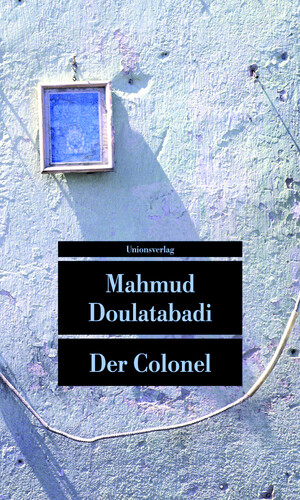About
Author: Mahmoud Dowlatabadi (Iran)
Genre: Socio-Political
Setting
Place: Iran
Time: 1980s
My Rating (see what this means)
My Subjective Rating: 2
My ‘Objective’ Rating: 2.21
Introduction

The Colonel by Mahmoud Dowlatabadi is set in around the time of the Islamic revolution of Iran in the 1970s-80s. It was a time of great expectations in Iran’s history. Post-revolution Iran, however, became one of the strongest challenge to my general belief that net-net humanity is progressing (whatever progress means to my liberal sensibilities) as this net-net movement would mean nothing to Iranians who find themselves caught in an ebb that seems unending.
The protagonist in this novel – the colonel (with a lower case c) is one such individual – struggling to make sense of his life choices as each of his five children fall prey to the revolution. With no end in sight to the bleakness of the times, this introspection makes for a bleak book
Review
For revolutions that devour their own – the Iranian revolution has a strong case to make. The overthrow of the unloved Shah regime had a varied cast of characters – liberals and conservatives, islamists and communists.
Each of the main characters in this novel, represents a sort of political subgroup that fought for the future of Iran – disappointed liberals, tortured communists, martyred Islamists, disillusioned follower-of-the-rules. This makes the book a complicated read for people not familiar with the revolution. Add to that narrative choices – the colonel’s and his only alive son’s deliriousness, non-linear storytelling and the ghosts that linger around – the book captured well the hopelessness of the times – but can also leave readers confused about certain timelines, certain events altogether. (The exhaustive index at the end becomes an necessary guide)
The 2 protagonist – the colonel – dealing with the loss of his children by engaging and avoiding the ghosts of his past heroes and the wife he murdered and Amir, his eldest son, broken by the torture he endured during the previous regime, while hosting his torturer in his house, have too many of their own horrors to deal with – cutting pathetic figures in the quest to grasp their slipping reality. That makes them impactful protagonists. That can’t be said for the supporting cast – even though a lot of them are just figments of memories of the delirious protagonists. Some, like the policeman who decides to resign, felt unnecessary.
Net-net – It may well be a book targeted primarily towards a domestic audience, which unsurprisingly is banned in the post-revolution Iran.
Picture Credits:
- Cover Picture: Associated Press (AP)